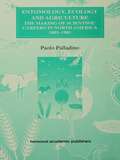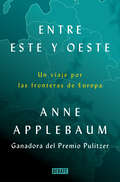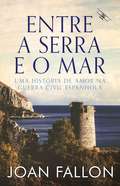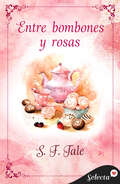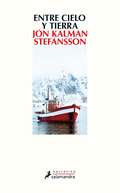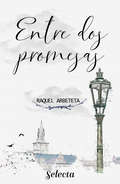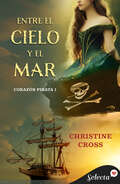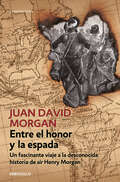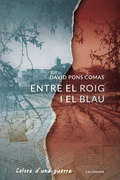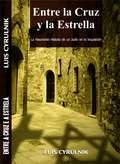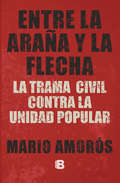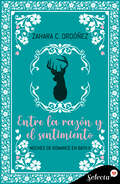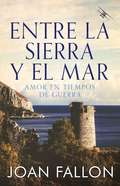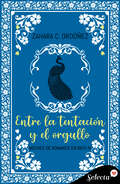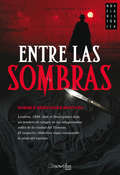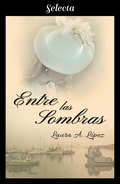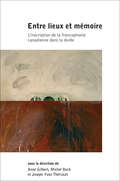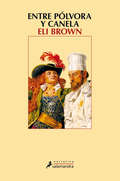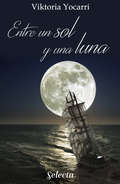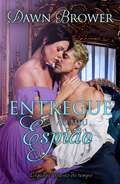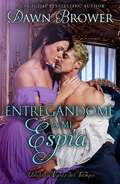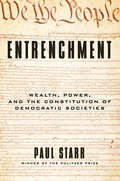- Table View
- List View
Entomology, Ecology and Agriculture: The Making of Science Careers in North America, 1885-1985 (Routledge Studies in the History of Science, Technology and Medicine)
by Paolo PalladinoThis study is facilitated by following economic entomologists' and ecologists' changing ideas about different pest control strategies, chiefly 'chemical', 'biological', and 'integrated' control. The author then follows the efforts of one specific group of entomologists, at the University of California, over three generations from their advocacy of 'biological' controls in the 1930s and 40s, through their shifting attention to the development of an 'integrated pest management' in the context of 'big biology' during the 1970s.
Entre Este y Oeste: Un viaje por las fronteras de Europa
by Anne ApplebaumUna lectura imprescindible para descifrar los orígenes de la guerra en Ucrania y la frágil situación de Europa del Este. En el otoño de 1991, en plena desintegración del imperio soviético, Anne Applebaum -ganadora del Premio Pulitzer por Gulag. Historia de los campos de concentración soviéticos- emprendió un viaje desde el Báltico hasta el mar Negro, pasando por Lituania, Bielorrusia, Los Cárpatos y Ucrania, con la intención de comprender la nueva configuración de unos territorios en constante conflicto. Por el camino descubrió un amplio abanico de culturas identitarias, religiones y aspiraciones nacionalistas que competían entre sí. Si bien han transcurrido más de treinta años, las vidas aquí narradas se leen hoy como un registro documental de un mundo que ya no existe. Applebaum, una excelente observadora, teje con granhabilidad la desgarradora historia de una región incomprendida a través de los relatos de personas corrientes, que describen el modo en que los acontecimientos históricos influyen y marcan la vida de la gente. Ubicado entre la crónica periodística, la literatura de viajes y el ensayo histórico, Entre Este y Oeste ilumina con brillantez los orígenes de la crisis geopolítica entre Rusia y Europa y nos ofrece algunas claves para entender el alma de estas tierras fronterizas. La crítica ha dicho:«En su implacable búsqueda de la comprensión, Anne Applebaum ilumina mundos relegados al olvido de esperanza, sufrimiento y dignidad humana».The Washington Post «Sus investigaciones la han llevado a revalorizar de manera radical algunos de los supuestos históricos más básicos de Occidente».The Evening Standard «El carácter receptivo de Applebaum anima a los fronterizos a contarle la infinidad de formas en que la división política ha subyugado sus vidas personales, sus tradiciones culturales y sus lenguas».Publishers Weekly
Entre a Serra e o Mar
by Joan FallonUma história de amor na Guerra Civil Espanhola Em janeiro de 1937, Elizabeth, uma jovem inglesa, decide permanecer na Espanha quando o resto de sua família retorna à paz da Inglaterra. Sozinha na cidade devastada de Málaga, ela faz amizade com dois jovens, Juan, um espanhol idealista e Alex, um inglês pragmático. Juntos, eles fazem sua fuga da cidade devastada pela guerra ao longo da costa de Almería. Em meio à morte e a carnificina ela se apaixona por Juan, perdendo-o pouco depois, quando ele é gravemente ferido. Acreditando que ele está morto, ela retorna para a Inglaterra com Alex, com quem mais tarde se casa. Setenta anos depois, Kate, a neta de Elizabeth,recebe um legado após a morte de seu avô, um que abre uma caixa de segredos e revela mentiras em uma caixa de Pandora que Kate só consegue desvendar retornando à Espanha.
Entre bombones y rosas
by S. F. TaleSan Valentín se acerca y trae una... ¿sorpresa? Una novela con mucho romanticismo en la que el corazón, una vez más, se rinde al amor. ¿Qué mejor que una fiesta para celebrar el amor con el pretexto del día de los enamorados? Con todos los preparativos hechos, con todo listo para la noche más romántica, con el amor flotando en el ambiente nada puede salir. Pero una sombra, siempre dispuesta a empañar la felicidad, rondará a los protagonistas, los asustará, los enfadará y se deberán enfrentar a las peores versiones de sí mismos. Una aventura llena de risas, amistad y malentendidos donde nada es lo que parece.
Entre bromas de amor (Ebrias de amor #Volumen)
by Ana E. Guevara Sandra Bree Ana Álvarez Isabel Jenner Ava Cleyton¿Pensábais que ya os habíais despedido de las chicas del JB? ¡Ellas no han terminado con nosotros! Uníos a esta divertida aventura, donde todo puede pasar. ¡Brindemos una vez más con ellas! Las chicas del JB se han reunido para pasar un fin de semana junto a sus parejas en el idílico paisaje nevado de la sierra de Gredos. El encuentro fuera del Lolita’s no solo es una escapada que promete momentos románticos y divertidos, sino que coincide con una fecha muy especial que están más que dispuestas a celebrar... aunque sus chicos no tengan ni idea de lo que les espera. Y es que cuando Vero, Romi, Tere, Chus, Anisi y Lena se juntan, puede pasar cualquier cosa...
Entre cielo y tierra
by Jón Kalman StefánssonAmbientadas en las pequeñas aldeas del oeste de Islandia, las historias de Jón Kalman Stefánsson exploran con sutileza los laberintos del alma humana a la par que destilan una visión poética de la existencia. Primera entrega de la Trilogía del muchacho. La novela se sitúa hace poco más de un siglo, en un poblado de pescadores de los fiordos occidentales, entre montañas escarpadas y un mar generoso y voraz, capaz tanto de dar alimento como de arrebatar vidas. Siguiendo una tradición centenaria, los hombres salen a pescar desde muy jóvenes en diminutos botes y, para alcanzar los bancos de bacalao, con frecuencia deben remar durante horas entre el oscuro oleaje. Y no saben nadar. Una noche, un muchacho y su amigo Bárður se embarcan en la cuadrilla de Pétur y se lanzan a la mar. Apenas adolescentes, comparten su afición por los libros y sus ganas de conocermundo. Después de largar las líneas, mientras aguardan la captura, el horizonte se llena de nubes y se levanta una peligrosa ventisca de invierno. El bote inicia a duras penas el regreso a tierra y, a medida que aumenta el frío polar, la frontera que separa la vida y la muerte puede depender de una sola prenda: un chaquetón de piel. Reseñas:«En las novelas hipnóticas [de Jón Kalman Stefánsson], la naturaleza reina sobre todas las cosas, incluso de manera despótica: lo da y lo quita todo.»Antonio G. Iturbe, La Vanguardia «Su hondura poética, su enorme belleza literaria y las aventuras de unos jóvenes que se enamoran, comen, ríen, se pelean, leen a Milton y trabajan y viven al borde de la muerte en un entorno tan bello como hostil sitúan a Stefánsson entre los grandes nombres de la literatura islandesa.»Xavi Ayén, La Vanguardia «Tal vez sea el lenguaje entendido como un destello inexcusable de luz en la ominosa tiniebla delmundo lo que marque a fuego esta novela. El amparo de la voz frente a la oscuridad. La entronización de la palabra.»Javier Aparicio Maydeu, Babelia
Entre dos promesas
by Raquel Arbeteta¿Es posible reescribir una historia de amor que parece sentenciada desde el principio? Dos Ríos, 1926. Los Lume y los Branca, dos bandas enfrentadas por años de rencor y rivalidad, se ven de pronto amenazados ante la llegada de una banda rival a la ciudad. Deva y Arlen, los futuros líderes de las familias, tendrán que tragarse el orgullo y pactar una tregua... que termina en una repentina emboscada en la que Deva cae gravemente herida. Y Arlen, en contra de toda lógica, decide salvarla. Malherida, la chica tendrá que recuperarse en casa de los Lume, sus eternos enemigos, y aceptar a regañadientes la ayuda de Arlen. Y mientras ella sana, tanto Arlen como Deva descubren varias cosas: que las heridas del pasado siempre se pueden curar y que, tal vez, no sea odio lo que sienten por el otro. Puede que vaya siendo hora de que cumplan una promesa que lleva demasiado tiempo pendiente entre los dos. La confianza es lo que puede tenderles el puente de vuelta al otro. Pero ¿y si tu mayor enemigo es también tu primer amor?
Entre el cielo y el mar (Bilogía Corazón Pirata #Volumen 1)
by Christine CrossEn un océano infestado de piratas, dos corazones en busca de la felicidad encontrarán el amor entre el cielo y el mar. Maximiliam Hart, marqués de Blackmoor, heredó el título a los doce años, cuando recibió la noticia de la muerte de sus padres y su hermana de tres años a manos de unos sangrientos piratas. Catorce años después, descubre que hay una posibilidad de que su hermana haya sobrevivido. Tras pedir ayuda al Almirantazgo para emprender su búsqueda y serle denegada, decide ir él mismo a buscarla, aunque tenga que unirse a los piratas y servir al mismo diablo. Quizá por eso no sabe qué pensar cuando en medio de aquel infierno encuentra un ángel. La honorable señorita Prudence Houghton cuenta con una sustanciosa herencia tras el fallecimiento de sus padres. A pesar de las numerosas proposiciones matrimoniales que ha recibido, Hector, su primo y tutor legal, se ha negado a conceder su mano.Cuando descubre las viles intenciones que Corey guarda hacia ella, resuelve pedir ayuda a un antiguo amigo de su padre. ¿Cómo iba a saber que para ello tendría que embarcarse y soportar los modales toscos y sucios de los marineros? Y, sobre todo, enfrentarse a un demonio de ojos azules que despierta en ella emociones poco apropiadas para un grumete.Una historia plagada de aventuras, de batallas en el mar, de piratas y de romance en el siglo XVIII. Un viaje al mar Caribe, a sus islas paradisiacas, a sus tabernas que eran nidos de asesinos y ladrones.
Entre el deber y el placer (Noches de romance en Bath #Volumen 3)
by Zahara C. Ordóñez«Sé que no hay forma de que podamos estar juntos y, aun así, el deseo de estar a su lado por siempre es más fuerte que nunca». Un escándalo.Dos reputaciones en juego.Una impetuosa pasión.Un amor tan imprevisto como indebido. Henry Trebarwith, cuarto hijo del conde de Trevanyon, es un joven brillante y responsable. Sin embargo, su fuerte sentido de la justicia con los más necesitados, algo que no casa en una sociedad egoísta y vanidosa, lo ha puesto en riesgo de escándalo en más de una ocasión. Cassandra Emery es una reputada actriz, talentosa, bella y... desgraciada en el amor. Acumula desengaños esperando que alguien la ame de verdad, cosa que teme jamás sucederá. Tras su peor decepción, dispuesta a plantarle cara al que la engañó, se cuela en el club de caballeros. Una falta al decoro inadmisible. Henry media por ella; un acto que traerá consecuencias y los llevará a la más impetuosa de las pasiones, hasta que sus corazones tengan que elegir entre el deber y el placer. Porque... ¿cómo va el hijo de un respetado conde, famoso por su defensa de la moral, a verse envuelto en una relación con una actriz? ¿Cómo va ella a arrojarse a otro amor imposible?
Entre el honor y la espada: Un fascinante viaje a la desconocida historia de sir Henry Morgan
by Juan David Morgan«–¿Queréis explicar a la Corte en qué consiste el oficio de privateer? –Un privateer es un soldado al servicio de la Corona inglesa que cobra su sueldo de los bienes incautados al enemigo.» En 1685 sir Henry Morgan, a quien cualquiera que no fuera súbdito de la Corona inglesa consideraría un vil pirata, demandó a dos reconocidos libreros de Londres y reclamó de cada uno de ellos la suma de diez mil libras esterlinas por daños a su honor. A través del juicio por difamación se narra la seductora vida del corsario Henry Morgan (1635- 1688), desde sus orígenes humildes en Llanrumney, país de Gales, hasta su ascenso a sir del Reino de Inglaterra, gracias a sus batallas en contra de la Corona española, escenificadas principalmente en el mar Caribe –Yucatán, Honduras, Nicaragua, Maracaibo, Portobelo– y, en especial, la toma y saqueo de Panamá en el Pacífico.
Entre el roig i el blau: Colors d´una guerra
by David Pons ComasUna novel·la vibrant i evocadora que aprofundeix en les veritables causes de la Guerra Civil. Entre el roig i el blau és una novel·la inspirada en fets reals. <P><P>S'origina quan l'autor descobreix una sèrie de cartes antigues i una enigmàtica nota que exculpa al protagonista de l'obra d'uns assassinats comesos l'any 1936. A partir d'aquí l'autor inicia una investigació per esclarir la veritat dels fets mitjançant la figura de Josep Brunet, alcalde republicà i hereu de la nissaga dels Saurí. Aquest esdevindrà el fil conductor per a relatar els fets més quotidians, més transcendents i també més traumàtics que visqué el seu poble i el nostre país, aprofundint en les causes de la Guerra Civil, la revolució, l'exili i els darrers anys del franquisme amb un lirisme i una veracitat escruixidors que reflecteixen l'odi social viscut. I és que, en aquella maleïda guerra, entre el roig i el blau esclafiren altres colors,tants com persones atrapades entre els dos bàndols agitats pels ideòlegs incendiaris que feren els possibles perquè esclatés, éssers humans que l'únic que volien era viure dignament amb les seves famílies i que es veieren obligats a enfrontar-se entre ells en un dels conflictes més cruels que patí mai Europa.
Entre la Cruz y la Estrella - La Fascinante Historia de un Judío en la Inquisición
by Luis CyrulnikSobre el Libro – Entre la Cruz y la Estrella Pierre es un joven francés creado en un orfanato en el inicio del siglo XIV. Bajo la turbulenta Edad Media, descubre que es hijo de judíos y empeza a soñar en encontrar la familia, aun sin saber si los padres están vivos. Comete un crimen aún joven, que lo obliga a salir de Francia, iniciando una fantástica y aventurera jornada por países musulmanes y cristianos, lo forzando a cambiar constantemente de religión. Luchando para vivir, acompaña a una tropa de mercadores y descubre un don artístico que lo lleva a un conflicto entre la búsqueda por la riqueza y la fe absoluta. Al largo de esa epopeya, cárceles, torturas y descubiertas son constantes y realísticas. Un libro imperdible, con relatos historicos que revelan la mente medieval, polémicas de la iglesia y costumbres de la época.
Entre la araña y la flecha: La trama civil contra la Unidad Popular
by Mario AmorósA 50 años de la asunción de Salvador Allende al poder, Mario Amorós relata la organización de los civiles para sabotear su gobierno. El bombardeo de La Moneda y la fiera represión que siguió al golpe de Estado opacaron la complicidad de los civiles en la instalación de la dictadura militar encabezada por Augusto Pinochet. Y, sin embargo, desde la elección de Salvador Allende en 1970 y a lo largo de tres años fueron ellos quienes reclamaron la «intervención» de Estados Unidos, bloquearon y torpedearon la acción del gobierno desde el Congreso Nacional, sabotearon la economía, recurrieron a la provocación y la violencia e instigaron el golpismo en el seno de las Fuerzas Armadas, hasta situar a Chile al borde del abismo. Desde sus diferentes trincheras, Agustín Edwards, Eduardo Frei, Sergio Onofre Jarpa, Patricio Aylwin, Orlando Sáenz, Pablo Rodríguez y Jaime Guzmán, entre otros, encabezaron aquella ofensiva. Recibieron, además, una financiación millonaria desde el exterior e incluso comprometieron el apoyo militar de Brasil ante una posible guerra civil. «Este crimen de lesa patria y de lesa humanidad», según la querella presentada por las agrupaciones de familiares de víctimas de la dictadura, sigue impune casi medio siglo después. En un riguroso trabajo bibliográfico y documental, Mario Amorós detalla cómo la trama civil preparó las condiciones políticas, económicas y sociales precisas para el derrocamiento del gobierno constitucional, que estos prohombres justificaron y avalaron ante Chile y el mundo durante mucho tiempo.
Entre la piel y el alma
by Raquel Gil EspejoUna historia de amor épica entre la hija de una esclava y el hijo de un mercader. Sevilla, segunda mitad del siglo XVI. En una de las ciudades más prósperas del mundo, la esclava Juanita, en manos de un amo cruel y déspota, da a luz a una niña que abandona a los pies del palacete de un rico mercader con el único y desesperado propósito de liberarla del estigma de la esclavitud. Así arranca Entre la piel y el alma, una novela envolvente y conmovedora que despliega la historia de Ximena de Moncada, una joven que no solo habrá de hacer frente a la desventaja propia que supone ser una mujer negra en un mundo dominado por el hombre blanco, sino que pronto entenderá que su peor enemigo reside en su propio hogar. Entre la piel y el alma rescata del olvido una época en la que el amor verdadero se antojaba una utopía. Ximena pronto se verá separada de las personas a las que ama, teniendo que luchar por no ser condenada al ostracismo y quedar a merced de un padre autoritario que no duda en separarla de Alonso, con quien se ha criado y de quien está enamorada, y que acaba siendo desterrado a la ciudad de Veracruz. Ximena de Moncada se abrirá paso movida por su amor y su sentido de la justicia, pese a vivir en una sociedad injusta y discriminatoria.
Entre la razón y el sentimiento (Noches de romance en Bath #Volumen 2)
by Zahara C. Ordóñez«Estaría dispuesto a olvidar hasta mi nombre por un solo instante en sus brazos. Por una sola de sus sonrisas. ¿Qué ha hecho conmigo?». Una atracción inesperada.Un amor arrollador.Una promesa que amenaza con convertirlo en imposible. Charles Cathworth, marqués de Adler, pospone el asunto del matrimonio hasta que su padre, en su última voluntad, le pide que se despose. La dama que sugiere es apropiada y, siendo un hombre juicioso, le promete que lo hará. Entretanto, conoce a la joven londinense lady Susan Hartfield, que despierta su interés como ninguna otra. Sin embargo, la distancia que ella impone le hace pensar que no es mutuo, por lo que se propone olvidarla y seguir con sus planes. Susan siente algo por Charles, pero vive presa de su tutor, lord Sathorne, que la amenaza con airear su mayor secreto. Con esos grilletes carga hasta Bath, su nueva residencia, donde su belleza y fortuna la convierten en un codiciado objeto de deseo. Cuando Charles y Susan se ven de nuevo, lo que sienten se desborda y la atracción los sume en la encrucijada de elegir entre la razón y el sentimiento. Las circunstancias juegan en su contra, haciendo que todo parezca imposible, pero...¿acaso contempla el lenguaje del amor tal palabra?
Entre la sierra y el mar
by Joan FallonEntre la sierra y el mar es una historia de amor ambientada en la Guerra Civil Española. En enero de 1937, Elizabeth, una joven inglesa, decide permanecer en España cuando el resto de su familia regresa a la paz de Inglaterra. Sola, en la devastada ciudad de Málaga, se hace amiga de dos jóvenes, Juan, un idealista español y Alex, un pragmático inglés. Juntos se escapan de la ciudad castigada por la guerra siguiendo la costa de Almería. Entre la muerte y el exterminio se enamora de Juan, solo para perderlo poco tiempo después cuando es gravemente herido. Creyendo que está muerto, regresa a Inglaterra con Alex, con quien se casa poco después. Setenta años más tarde, Kate, la nieta de Elizabeth, hereda un legado a la muerte de su abuelo, un legado que destapa una caja de Pandora de secretos y mentiras que Kate solo puede descubrir regresando a España.
Entre la tentación y el orgullo (Noches de romance en Bath #Volumen 4)
by Zahara C. Ordóñez«¿Recuerda cuando dije que no la besaría, aunque fuera la última persona en la Tierra? Le hará feliz saber que pienso tragarme mis palabras». Dos corazones enfrentados.Una rendición que se firmará al calor de un beso. La familia de Arthur Belaford, dedicada al comercio, ha medrado hasta tener abiertas las puertas de la aristocracia. Hombre de fortuna y posición tiene un futuro prometedor. Y es un seductor sin remedio. El interés por sus conquistas le dura poco, hasta que en una fiesta de máscaras se topa con una interesante desconocida que no cae rendida a él, lo que le irrita y apasiona a partes iguales. Azucena Kellington tiene claro que no caerá en manos de cualquiera y menos en las de Arthur, a quien reconoce. Sabe que es un canalla y el heredero de los enemigos de su padre, con quienes mantiene una guerra comercial. Andar con él atenta contra el orgullo familiar. Aunque quizá, la tentación de entrar en su juego, solo para doblegarlo, sea demasiado sugerente. Él aceptará el ardoroso desafío de conquistarla y sus corazones se debatirán entre la tentación y el orgullo, sin saber que, en esa guerra, solo hay un ganador: el amor. «No sé cómo lo hace Zahara C. Ordóñez, pero, para mi gusto, crece como escritora día a día, novela a novela, y ya está entre mis autoras preferidas». Nieves Hidalgo
Entre las sombras (Historia Incógnita)
by Enrique Hernández-MontañoLlueve y la niebla amenaza con correr sus cortinas blancas y encerrar a Londres bajo las tinieblas de un teatro macabro. Una serie de prostitutas aparecen asesinadas brutalmente, mientras el criminal se camufla entre las sombras del poder y la sospecha.
Entre las sombras (Rosa blanca #Volumen 4)
by Laura A. LópezLlega la cuarta entrega de la serie de romance histórico «Rosa blanca». Si te gustaron las novelas anteriores, no puedes perderte la apasionante historia de Lady Onella y su querido Brian. Más allá de los ojos está el corazón. Lady Onella Lloyd, vive un calvario constante desde que la vida le arrebato la luz, su única ilusión es el doctor Brian Lowel, pero por circunstancias de la vida se separan en América. Al morir su padre ella queda desamparada y a merced de la malvada e interesada lady Carlotta Lloyd, quien la maltrata y luego la entrega a unos hombres que la llevan hasta Londres para venderla como una exótica belleza ciega. Su madre y el nuevo conde de Wessex la buscan hasta conseguir rescatarla. Meses después desean insertarla en sociedad, donde coincide con Brian Lowel, que está buscando esposa. Pero el corazón de Onella ya está comprometido con otro... ¿Podrá Brian conquistar su amor de nuevo?
Entre lieux et mémoire: L'inscription de la francophonie canadienne dans la durée (Collection Amérique française)
by Gilbert, Anne; Bock, Michel; Thériault, Joseph-YvonDans Les lieux de mémoire, Pierre Nora affirme que « la mémoire s'enracine dans le concret, l'espace, le geste, l'image et l'objet » (1984, xix). Entre lieux et mémoire adopte une perspective semblable et jette un regard sur les expériences concrètes, géographiquement situées, par lesquelles les francophones du Canada construisent leur identité à partir des réminiscences de leur passé. Ce questionnement est essentiel, car la géographie de la francophonie canadienne évolue rapidement, consolidée au Québec au cours notamment des dernières cinquante années, mais fragilisée dans les milieux les plus dynamiques de la francophonie hors Québec, là où les francophones se confrontent quotidiennement à l'Autre : anglophone, immigrant et allophone. Dans ces lieux consolidés et fluides se tissent les appartenances et les identités de ceux qui les occupent. Les auteurs abordent les lieux de mémoire du Canada français selon trois approches : l'histoire, la géographie et les arts. Tous mettent en évidence que la fondation d'un lieu de mémoire est un acte politique. Enfin, ils montrent qu'une étude des lieux de mémoire, par l'entremise des individus et des groupes qui les instituent, constitue un préalable à la compréhension de l'identité francophone canadienne, dans son unité comme dans sa diversité.
Entre pólvora y canela
by Eli BrownLa primera novela de piratas para gourmets. Una historia singular y trepidante, llena de aventuras marítimas y culinarias. En 1819, el Imperio británico domina los mares con mano de hierro y expande sus tentáculos hasta los confines del mundo. Ajeno a todo esto vive Owen Wedgwood, un cocinero magnífico que lleva casi una década a las órdenes de lord Ramsey, uno de los comerciantes más conspicuos de la época. Pero la plácida rutina del viudo y solitario Owen se trunca en un instante cuando, en el transcurso de un banquete, es secuestrado por los tripulantes del Flying Rose, un barco pirata al mando de la temible Hannah Mabbot, que lo encierra en las bodegas del navío y le anuncia que, si en algo aprecia su vida, deberá prepararle cada domingo una cena exquisita. Y si dicen que el instinto de supervivencia agudiza el ingenio, Owen lo demostrará con creces. Pesea disponer de una cocina sin utensilios adecuados y una despensa saqueada por las ratas, recurrirá a un sinfín de artimañas culinarias para servir a Mabbot deliciosos platos como paté de arenque al romero sobre pan de nueces o raviolis de anguila ahumada al té. Así, semana tras semana, mientras el cocinero lucha con denuedo por salvar su pellejo, entre él y la fiera capitana Mabbot va entablándose una improbable relación que puede acarrearle otro tipo de problemas. Sobre el telón de fondo del lado más oscuro del Imperio, con la trata de esclavos y los abusos vinculados al comercio del té, la seda y la plata, esta singular y trepidante historia gira en torno a dos personajes geniales: el pacato Owen Wedgwood, un Sherezade de los fogones que sufre una auténtica metamorfosis vital entre corsarios desalmados y vivencias al límite, y la insólita y fogosa Hannah Mabbot, cuyos secretos de familia la impulsan hacia un destino que bascula entre la gloria y el fracaso. Una explosiva amalgama de emocionantes aventuras marineras e inauditas experiencias gastronómicas que cautiva al lector desde la primera página. La crítica ha dicho...«Exuberancia gastronómica y aventuras de piratas vertiginosas son dos sabores que combinan de manera fantástica en este libro irresistible.»NPR «Sus sorprendentes personajes y las aventuras en alta mar hacen que esta novela sea muy distinta de cualquier otra que hayáis leído.»BookPage «Una novela histórica de capa y espada y de seducción culinaria, con personajes que evocan el desesperado ingenio de Sherezade y la endiablada crueldad del capitán Ahab.»Publishers Weekly «Intrépida y sensual.»Kirkus Reviews «Una combinación perfecta entre El festín de Babette y Piratas del Caribe.»Library Journal
Entre un sol y una luna
by Viktoria YocarriUna apasionante historia de amor, de tumultos y conspiraciones... En 1546, al norte del Virreinato de la Nueva España, donde las tierras rojas yacen inundadas de plata y hermosa cantera rosada, se tejen los entresijos de tumultos, alzamientos y rebeliones violentas. Los principales caudillos de la conquista buscan dominar y enriquecerse, por más que para ello sea preciso sembrar cadáveres en suelo conquistado. Obligada por la fuerza de las circunstancias, Leonor Cortés Moctezuma, indígena noble por parte de su madre y española por parte de su padre, decide probar suerte en tierras novogalaicas. Cediendo a un impulso, se instala en el corazón de un valle, con sus arrugas y accidentes centrales. Poco a poco ese contrafuerte montañoso y sus gentes, que le resultan tan ajenos, se adueñan de ella. En medio de tales pormenores, conoce a Juan de Tolosa, un soldado inquieto, de carácter aventurero y andariego, que busca fortuna en las vetas de plata camino a territorio zacateco. Y se ve inmersa en una comprometida expedición, que la abandona en la disyuntiva de luchar por el destino de un amor y dejarlo todo.
Entregue ao Meu Espião
by Beatriz Garcia Dawn BrowerUm patife, um marquês, um espião... Essas eram partes integrantes da vida de Dominic Rossington, e ele as fazia muito bem. O amor o tira de rumo, e ele fará tudo em seu poder para proteger a única que tem seu coração, Lady Rosanna. O perigo os cerca, e ele terá que colocar tudo em risco para salvá-la. O coração de Lady Rosanna se partiu quando o único homem, a quem sempre amou, disse que nunca se casaria e que, mesmo que se casasse, ela seria sua última escolha. Pouco depois, seu irmão mais velho morre em um estranho acidente, a deixando enlutada. Durante esse tempo, ela juntou os pedaços de seu coração, e o endureceu. Lorde Dominic Rossington, Marquês de Seabrook, trabalhava diligentemente como espião para o escritório de guerra. Levava uma vida perigosa, que não tinha espaço para esposa e família. Não poderia, em sã consciência, encorajar Lady Rosanna – mesmo que ela fosse o que mais desejava. Anos depois, Dominic vê um modo de se livrar de suas obrigações com a coroa e, finalmente, ficar com a mulher que sempre quis. Tudo o que tinha que fazer era completar uma última missão e convencê-la de que era a única mulher para ele. Será que os dois sobreviverão ao perigoso estilo de vida de Dominic tempo suficiente para reivindicar seu felizes para sempre?
Entregándome a mi Espía por Dawn Brower
by Dawn Brower Irene Saravia y Karen GuzmanUn canalla, un marques y un espía…Cada parte integral de la vida de Dominic Rossington y él lo hace muy bien. El amor lo hizo perder el equilibrio y el haría todo en su poder para proteger a aquella que tenía su corazón. El peligro acechaba en el horizonte y tendría que arriesgarlo todo para salvarla. El corazón de Lady Rosanna Kendall se rompió, cuando el hombre que ella siempre había amado le dijo que nunca se casaría, y que, aunque lo hiciera ella seria su última elección. Poco después su hermano mayor muere en un accidente extraño llevándola al luto. Durante ese tiempo ella recogió y reconstruye las dañadas piezas de su corazón roto y lo endureció. Lord Dominic Rossington, el marqués de Seabrook trabajaba diligentemente como espía para el ministerio de la guerra. El llevaba una vida peligrosa que no tenía lugar para una esposa o una familia. Él no podía en conciencia incentivar a Lady Rosanna – aunque ella fuera su más grande deseo. Años después Dominic ve una manera de liberarse de sus obligaciones con la corona y finalmente reclama la mujer que siempre ha querido. Todo lo que tiene que hacer es completar una última misión y convencerla que ella es la única para él, pero puede que sea demasiado tarde… ¿Sobrevivirán ambos al peligroso estilo de vida de Dominic lo suficiente para reclamar su final feliz?
Entrenchment: Wealth, Power, and the Constitution of Democratic Societies
by Paul StarrAn investigation into the foundations of democratic societies and the ongoing struggle over the power of concentrated wealthMuch of our politics today, Paul Starr writes, is a struggle over entrenchment—efforts to bring about change in ways that opponents will find difficult to undo. That is why the stakes of contemporary politics are so high. In this wide-ranging book, Starr examines how changes at the foundations of society become hard to reverse—yet sometimes are overturned. Overcoming aristocratic power was the formative problem for eighteenth-century revolutions. Overcoming slavery was the central problem for early American democracy. Controlling the power of concentrated wealth has been an ongoing struggle in the world&’s capitalist democracies. The battles continue today in the troubled democracies of our time, with the rise of both oligarchy and populist nationalism and the danger that illiberal forces will entrench themselves in power. Entrenchment raises fundamental questions about the origins of our institutions and urgent questions about the future.
